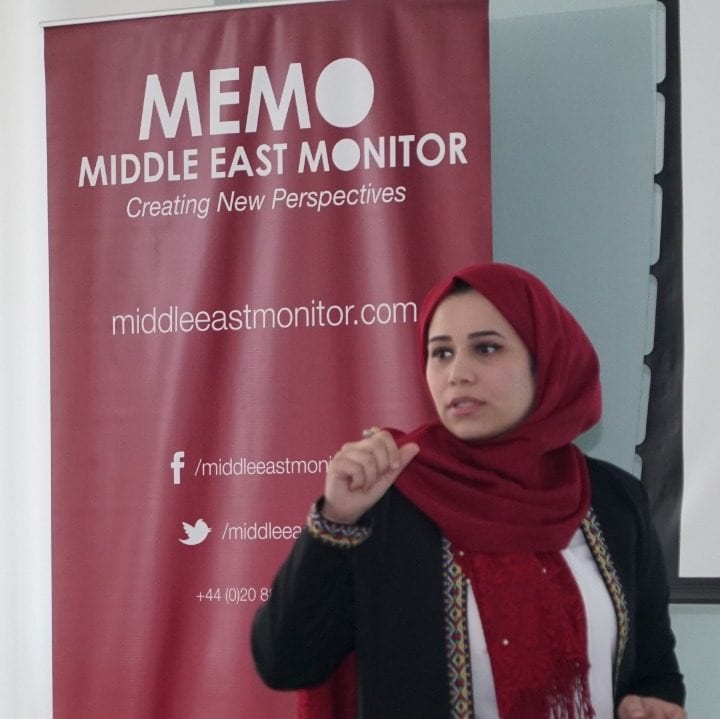As a boy, Mahmoud Hussein fled from his homeland of Palestine as a direct result of the Six-Day War in June 1967. He eventually sought refuge in Brazil. He was 13 years old at the time.
Hailing from the village of Yalu, which was occupied by Israel during the war, he told me what happened on that fateful day. “When the Israeli army entered the village, we were forced to go outside,” he explains. “People were running away with neither food nor drink. My mother was injured seriously and she died in front of us. We buried her near our house. May she rest in peace.”
That little boy went on to become a businessman 10,631km from his home in Palestine. His story is one of many which illustrate that the Palestinian refugees are living examples of patience and, in many cases, success. Neither the trauma of homelessness nor the pain of their loss broke them. On the contrary, it made them stronger. “Our homeland,” insists Hussein, “lives within us. We will never give up our birthright.”
It is every Palestinian’s destiny to carry his or her homeland in the diaspora. Exactly 53 years ago, Israel seized the remaining Palestinian territories of the West Bank, East Jerusalem and Gaza Strip. The Six Day War was a turning point for the entire region, not just the Palestinians.
READ: Annexation of occupied territory is a crime
Nineteen years after the 1948 Nakba (Catastrophe) of the creation of the state of Israel in Palestine, the Zionist state carried out a second wave of expulsions of Palestinians from their homeland. The Nakba resulted in 750,000 Palestinians being driven from their homes; the 1967 Naksa (Setback) saw another 420,000 forced to leave. The connection to their land is so strong though that even now, decades later, Palestinian refugees fight hard to exercise their legitimate right to return. The struggle has been passed down over the generations, as have the keys to their lost homes.
![“My mother was martyred in front of my eyes, and we couldn’t do anything for her”, Mahmoud said [Eman Abusidu, Middle East Monitor]](https://i0.wp.com/www.middleeastmonitor.com/wp-content/uploads/2020/06/“My-mother-was-martyred-in-front-of-my-eyes-and-we-couldn’t-do-anything-for-her”-Mahmoud-said-photo-by-Eman-Abusidu-Middle-East-Monitor.jpg?resize=1200%2C787&ssl=1)
“My mother was martyred in front of my eyes, and we couldn’t do anything for her”, Mahmoud said [Eman Abusidu, Middle East Monitor]
Millions of Palestinians still live in exile from the land that their families had lived in and farmed for generations. History has moved on since they arrived in their host countries where they thought they would stay for a few weeks or months, but ended up staying a lifetime. “Everything happened so quickly,” Hussein tells me, “and we couldn’t carry anything with us. However, in Brazil, we started our business.” The family opened a little store at first; then a chain of stores with more than 200 workers.

For Palestinian refugees in the diaspora, economic success means nothing unless it is accompanied by social development. “Now that we have successful businesses, our duty is to succeed socially and culturally by teaching the new generations about our right and desire to return to Palestine,” Hussein points out. “Whether it is next year, or in 50 or 100 years, we will return to Palestine.”
UN General Assembly Resolution 194 is explicit about the right to return: “Refugees wishing to return to their homes and live at peace with their neighbours should be permitted to do so at the earliest practicable date, and compensation should be paid for the property of those choosing not to return and for loss of or damage to property which, under principles of international law or in equity, should be made good by the Governments or authorities responsible.”
READ: What going home and staying there means for the Palestinians
Nevertheless, Israel refuses to comply with this and other resolutions and laws governing the status of refugees which affirm the Palestinian right to return to their original homes and land. Allowing them to do so was a condition of Israel’s membership of the UN; it is a condition that has been ignored by the state and the international organisation.
Every generation of Palestinians inherits the yearning for freedom. Palestinians will continue to seek a just peace that will provide future generations with their birthright; their land will be returned, one way or another. That was always the certainty in our grandparents’ hearts, and it remains with us today. There can be neither justice nor peace without resolving the plight of the 1948 and 1967 refugees and everyone who has since been displaced by Israel’s colonial occupation. Palestinians want peace, but it cannot come about as long as the occupation continues and Palestinians are denied their rights.
“Israel constantly tries to taint the reputation of the Palestinian people, and yet we are persistent and hard-working people,” concludes Mahmoud Hussein. “The most important thing which Israel must know is that we won’t give up our homeland. We have no life if we don’t return to what is ours by right.”











